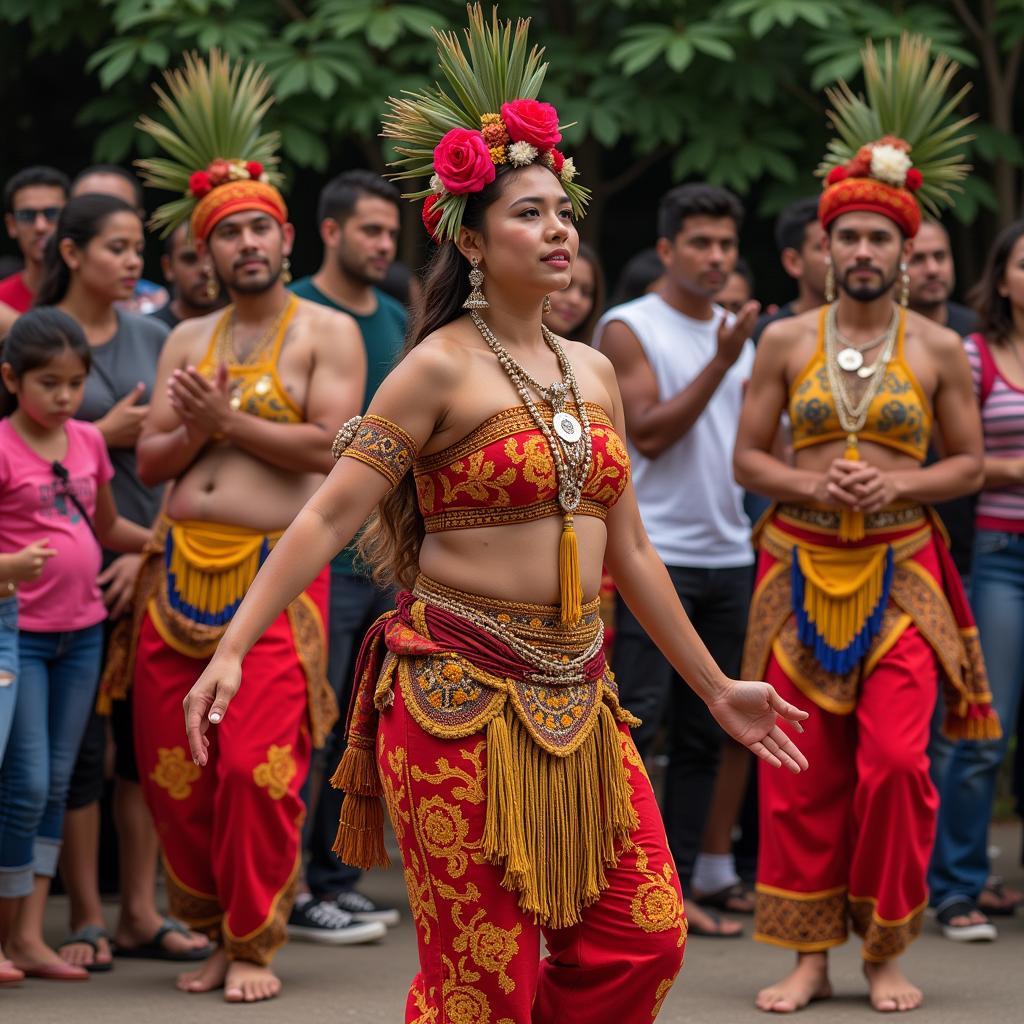Tourism and cultural exchange has been a frequently tested topic in IELTS Writing Task 2, appearing approximately 2-3 times per year in actual tests. Based on analysis of past exams, similar questions about tourism’s positive and negative impacts often focus on economic, social, and cultural aspects.
 Tourist interacting with local vendor at traditional market
Tourist interacting with local vendor at traditional market
Understanding the Task
Tourism is often seen as a way to promote understanding and cultural exchange between countries. However, some argue that it can lead to the exploitation of local communities. Discuss both perspectives and give your opinion.
This is a discussion essay requiring candidates to:
- Examine both positive and negative aspects of tourism
- Present balanced arguments about cultural exchange and exploitation
- Provide a clear personal opinion
- Support ideas with relevant examples
Sample Essay 1 (Band 8)
Tourism undoubtedly serves as a bridge between different cultures, yet its impact on local communities remains a subject of debate. While I acknowledge tourism’s role in fostering cross-cultural understanding, I believe careful management is essential to prevent exploitation.
Tourism facilitates meaningful cultural exchange in several ways. When tourists interact with local communities, they gain firsthand experience of different traditions, customs, and ways of life. For instance, visitors to rural Vietnamese villages can participate in traditional craft-making workshops, learning about centuries-old techniques while developing appreciation for local artisans. This direct engagement helps break down stereotypes and promotes mutual understanding between different nationalities.
However, the commercialization of tourism can lead to exploitation of local communities. Many tourist destinations face issues such as inflated prices, displacement of residents, and degradation of cultural authenticity. In Bali, Indonesia, for example, some traditional ceremonies have been modified to appeal to tourists, potentially diluting their cultural significance. Additionally, local workers often receive minimal wages while large tourism corporations reap substantial profits from their labor.
 Traditional ceremony modified for tourist entertainment
Traditional ceremony modified for tourist entertainment
In my view, while tourism’s potential for promoting cultural understanding is significant, its implementation must prioritize local community interests. Governments should establish regulations ensuring fair compensation for local workers and protecting cultural heritage. Sustainable tourism initiatives that involve community participation in decision-making can help balance cultural exchange with economic benefits.
To achieve this balance, tourism development should focus on:
- Implementing fair wage policies
- Preserving authentic cultural practices
- Ensuring local community involvement in tourism planning
- Limiting tourist numbers in sensitive areas
- Investing tourism revenue in community development
Sample Essay 2 (Band 6.5)
Tourism has become very important for cultural exchange between countries, but it can also cause problems for local people. This essay will discuss both sides and give my opinion.
On the positive side, tourism helps people learn about different cultures. When tourists visit new places, they can see how other people live, eat their food, and learn about their traditions. For example, tourists in Thailand can visit temples and learn about Buddhism. This helps them understand Thai culture better.
But tourism can also be bad for local communities. Sometimes tourists make prices go up, making it hard for local people to afford things. Also, some companies exploit local workers by paying them very low salaries. In some places, traditional culture is changed just to please tourists, which is not good.
I think tourism can be good if it is managed properly. Governments should make rules to protect local people and their culture. They should make sure tourism companies pay fair wages and respect local traditions. This way, both tourists and local people can benefit from tourism.
Analysis of Band Scores
Band 8 Essay Features:
- Sophisticated vocabulary: “facilitates,” “degradation,” “authenticity”
- Complex sentence structures
- Clear organization with well-developed ideas
- Specific examples and detailed explanations
- Cohesive devices used effectively
- Strong conclusion with practical solutions
Band 6.5 Essay Features:
- Simple but clear vocabulary
- Basic sentence structures
- Some development of ideas
- Limited use of examples
- Basic cohesive devices
- Simple but relevant conclusion
Key Vocabulary to Remember
- Cultural exchange (n) /ˈkʌltʃərəl ɪksˈtʃeɪndʒ/ – The sharing of ideas between different cultures
- Exploitation (n) /ˌeksplɔɪˈteɪʃən/ – Unfair treatment for benefit
- Indigenous (adj) /ɪnˈdɪdʒənəs/ – Native to a particular place
- Heritage (n) /ˈherɪtɪdʒ/ – Traditions passed down from previous generations
- Authenticity (n) /ˌɔːθenˈtɪsəti/ – The quality of being genuine or real
- Commercialization (n) /kəˌmɜːʃəlaɪˈzeɪʃən/ – The process of making something profit-driven
For practice, try writing your own essay on this topic or similar ones like:
- The impact of mass tourism on historical sites
- Economic benefits vs. environmental costs of tourism
- Local traditions and modern tourism development
Share your practice essays in the comments for feedback and discussion.


